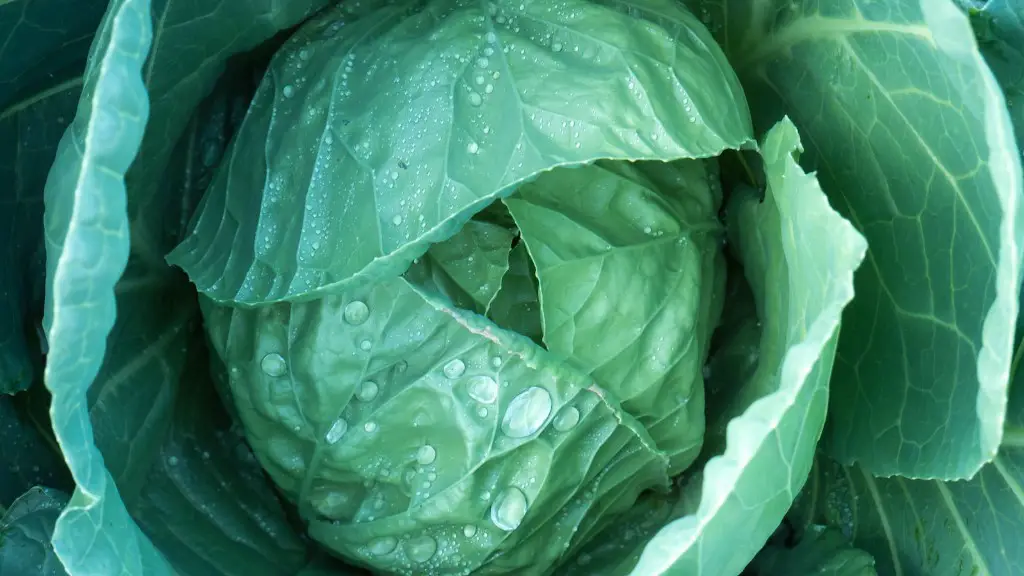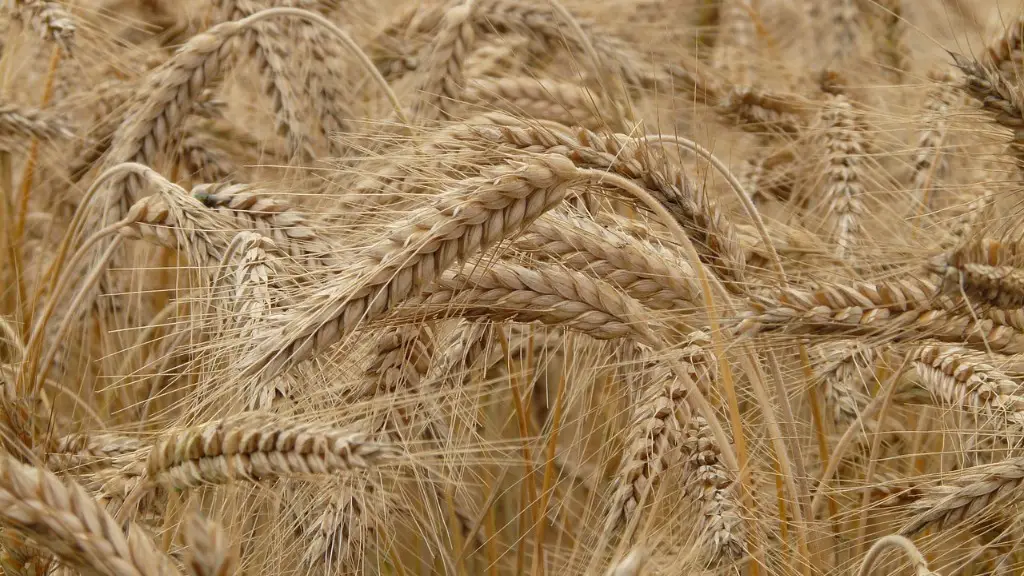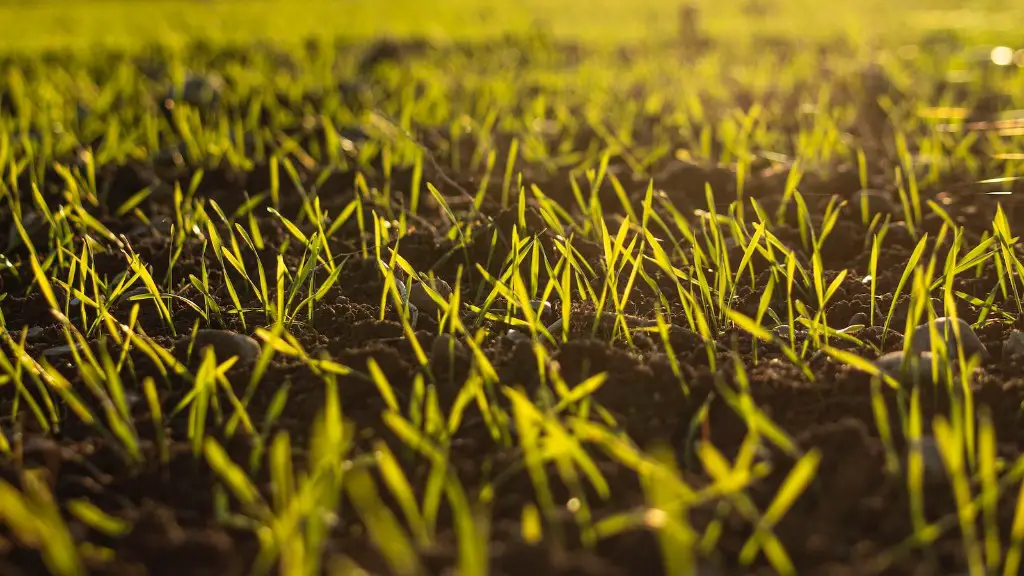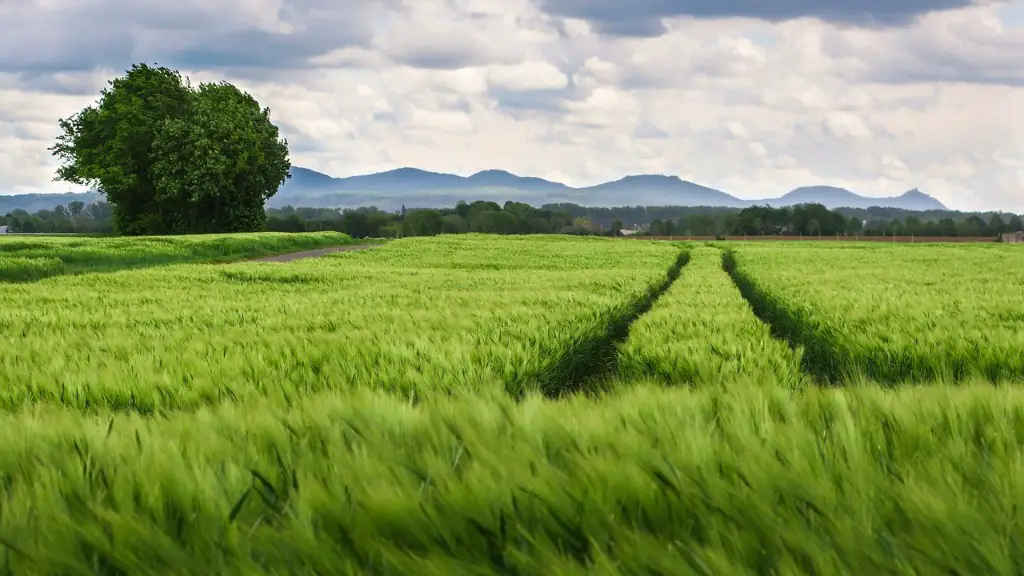Though it may not be obvious, agriculture has changed the world in countless ways. It is responsible for the domestication of plants and animals, which in turn led to the rise of civilizations. Agriculture allowed for the growth of cities and the rise of trade and commerce. It also led to the development of different cultures and religions. Without agriculture, the world would look very different.
Agriculture has had an immense impact on the world. It has allowed for the development of civilizations and has shaped the way we live today. Agriculture allowed for the domestication of plants and animals, which led to the development of civilizations. Agriculture has also had an impact on the environment, as it has led to the clearing of forests and the alteration of ecosystems.
How did agriculture help the world?
Farming is one of the most important inventions in human history. It allowed people to grow all the food they needed in one place, with a much smaller group of people. This led to massive population growth, creating cities and trade. Agriculture is the foundation of modern civilization, and it has had a profound impact on human society.
The agriculture sector is an important part of the US economy, contributing a significant share of the country’s gross domestic product. In 2021, agriculture, food, and related industries contributed roughly $1264 trillion to US GDP, accounting for 54 percent of the total. The output of America’s farms contributed $1647 billion of this sum, representing around 7 percent of US GDP. The sector employs a significant number of people and plays a vital role in the country’s food security.
What are 3 reasons why agriculture is important
1. Agriculture is the main source of raw materials for many industries.
2. Agriculture is important to international trade.
3. Agriculture plays a big role in a nation’s revenue.
4. Agriculture provides employment.
5. Agriculture is crucial to a country’s development.
6. Agriculture can help heal the environment.
7. Agriculture goes hand-in-hand with war.
8. Agriculture is a way of life for many people.
Agriculture plays an important role in the economy by providing food and raw materials for industry. It is a vital sector for economic growth and development.
How did agriculture change human society?
More abundant food supplies could support denser populations, and farming tied people to their land. Small settlements grew into towns, and towns grew into cities. Agriculture produced enough food that people became free to pursue interests other than worrying about what they were going to eat that day. This led to the development of civilizations.
While there are certainly negative environmental impacts associated with agriculture, there are also positive impacts. Agriculture can help trap greenhouse gases within crops and soils, which can help mitigate climate change. Additionally, certain farming practices can help mitigate flood risks. So while there are negative impacts of agriculture, there are also positive impacts that should not be ignored.
How does agriculture impact the world we live in?
Agriculture is one of the leading sources of pollution in many countries. Pesticides, fertilizers and other toxic farm chemicals can poison fresh water, marine ecosystems, air and soil. They also can remain in the environment for generations.
Toxic farm chemicals can enter the food chain and have a detrimental effect on human health. They can also cause long-term damage to the environment.
There are a number of measures that can be taken to reduce the pollution caused by agriculture. These include reducing the use of pesticides and fertilizers, and increasing the use of organic farming methods.
Urban farming has a variety of benefits that are becoming increasingly more recognised. These benefits include lower greenhouse gas emissions, minimal transportation requirements, and reduced energy use for food production. As more and more people become aware of these benefits, the trend of urban farming is starting to become quite popular.
What are the five benefits of agriculture
Farming is often seen as a simple, country lifestyle. However, there are many benefits to farming that make it a viable and healthy option for many people. For instance, farming is good for your health. The work is challenging and stimulating, and it provides a source of income in rural areas. Additionally, farm work helps develop younger generations and can help the environment thrive.
The agricultural sector is of great importance to any economy. It is, after all, considered as the backbone of the economy. It forms the basis for food and nutrition security and provides raw materials for industrialization.
The sector employs a large percentage of the workforce, and its contribution to the GDP is also significant. In many developing countries, the agriculture sector is the main source of foreign exchange earnings.
The sector is however, often neglected by policy-makers. This is because the farmers are considered as a vote bank, and their needs are often ignored in favour of other sections of the society.
The sector is also highly vulnerable to weather and climate related shocks. This makes it all the more important for the government to provide adequate support to the farmers.
It is important to note that the agricultural sector is not just about farmers and agriculture. It includes all the activities related to food production, from farming to processing to packaging to distribution.
The sector employs a large percentage of the workforce, and its contribution to the GDP is also significant. In many developing countries, the agriculture sector is the main source of foreign exchange earnings.
The sector is however, often neglected by policy-makers. This is because the farmers are considered as a
Why was life better after the agricultural revolution?
The Agricultural Revolution was a major turning point in human history, and set the foundation for what we know as modern human life. The ability to stay in one general area and cultivate our own food made life much more manageable, and contributed to the growth of human society in terms of culture, technology, and more. This time period was also marked by a major increase in population, as people were able to better care for themselves and their families. All in all, the Agricultural Revolution was a vital step in human evolution, and laid the groundwork for the modern world as we know it.
The agricultural revolution was a time of great change for humans. It led to a increase in dependence on the land, as well as a rise in inequality. The agricultural revolution also resulted in a decline in nutrition and an increase in infectious diseases contracted from domesticated animals.
What is the major impact of agriculture in our economy
Agricultural growth has an immediate impact on employment in rural areas, as more labour is required for non-tradable activities such as farming, livestock management, and food processing. This boost to employment often leads to increased economic activity in rural areas, as workers have more money to spend on goods and services. This, in turn, can lead to further agricultural growth as demand for food increases.
The 2nd Agricultural Revolution was a period of significant technological advancement in the field of agriculture. One of the most impactful innovations of this time was the steel plow, which greatly increased the efficiency of farming. Other advances in food production included mechanized harvesting, which also contributed to increased food production.
These innovations had a positive impact on society as a whole. Better diets and longer life spans became more common, and population growth increased as a result. This in turn led to a larger pool of workers for industry, as more people were able to survive and thrive. The 2nd Agricultural Revolution was therefore a key period in the development of modern civilization.
What will happen without agriculture?
Agriculture is the foundation of civilization and any stable economy. Agriculture provides food, shelter, clothing, and other basic needs for people. It also provides raw materials for industry and transportation. Agriculture is essential for the development of cities and the growth of economies.
Sustainable agriculture is important for preserving the earth’s natural resources, as well as for benefits to the environment such as maintaining soil quality, reducing erosion, and preserving water.
Final Words
The Agricultural Revolution was a major turning point in history. It began around 10,000 BC in the Fertile Crescent region of the Middle East and eventually spread to other parts of the world. The Agricultural Revolution led to the domestication of plants and animals, which allowed for the growth of civilizations. Agriculture allowed for the growth of cities and the rise of civilizations. It also allowed for the growth of food surpluses, which allowed for the development of trade and commerce. The Agricultural Revolution was a major catalyst for the development of human civilization.
Agriculture has changed the world in many ways. It has helped to feed the growing population and has provided a way for people to live in areas that were once uninhabitable. It has also changed the way people interact with the environment and has had a significant impact on the economy.





